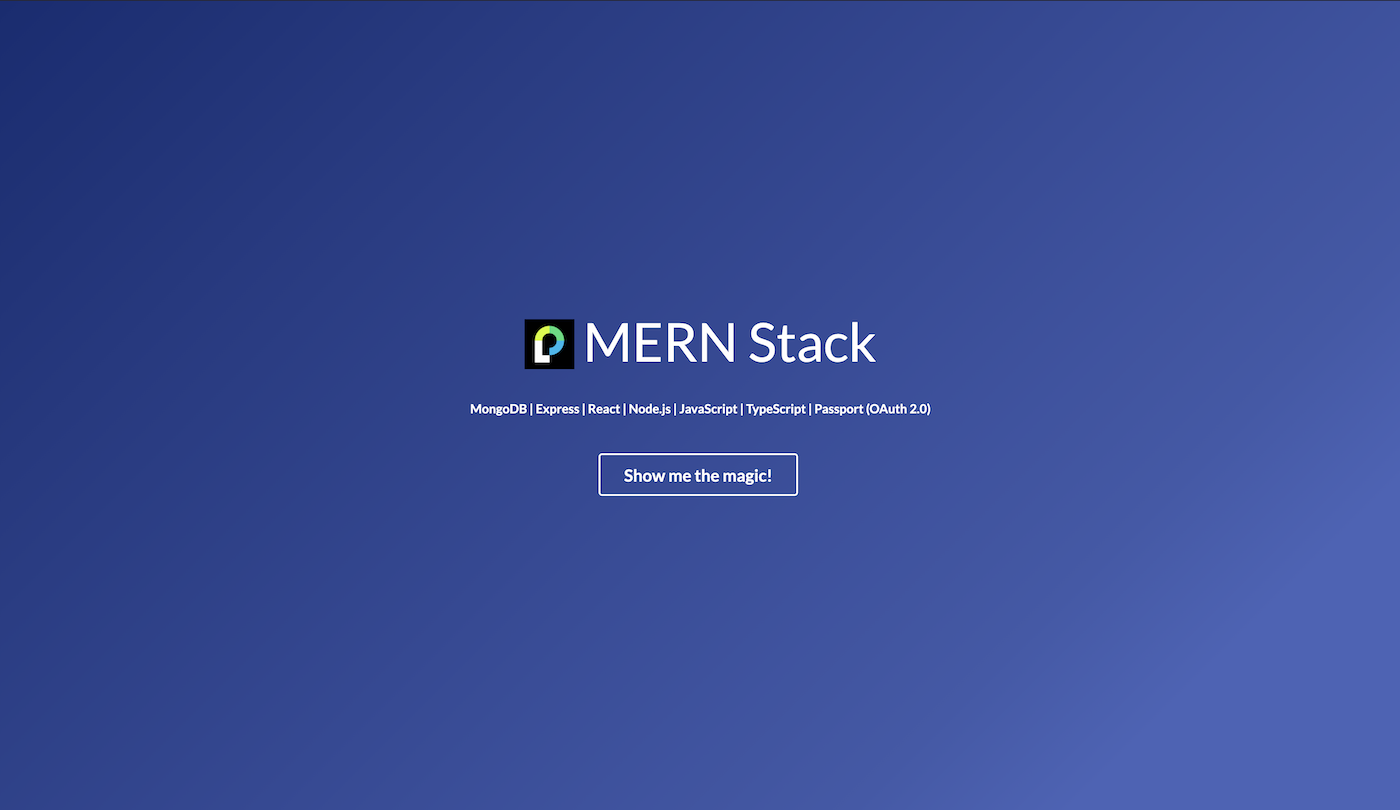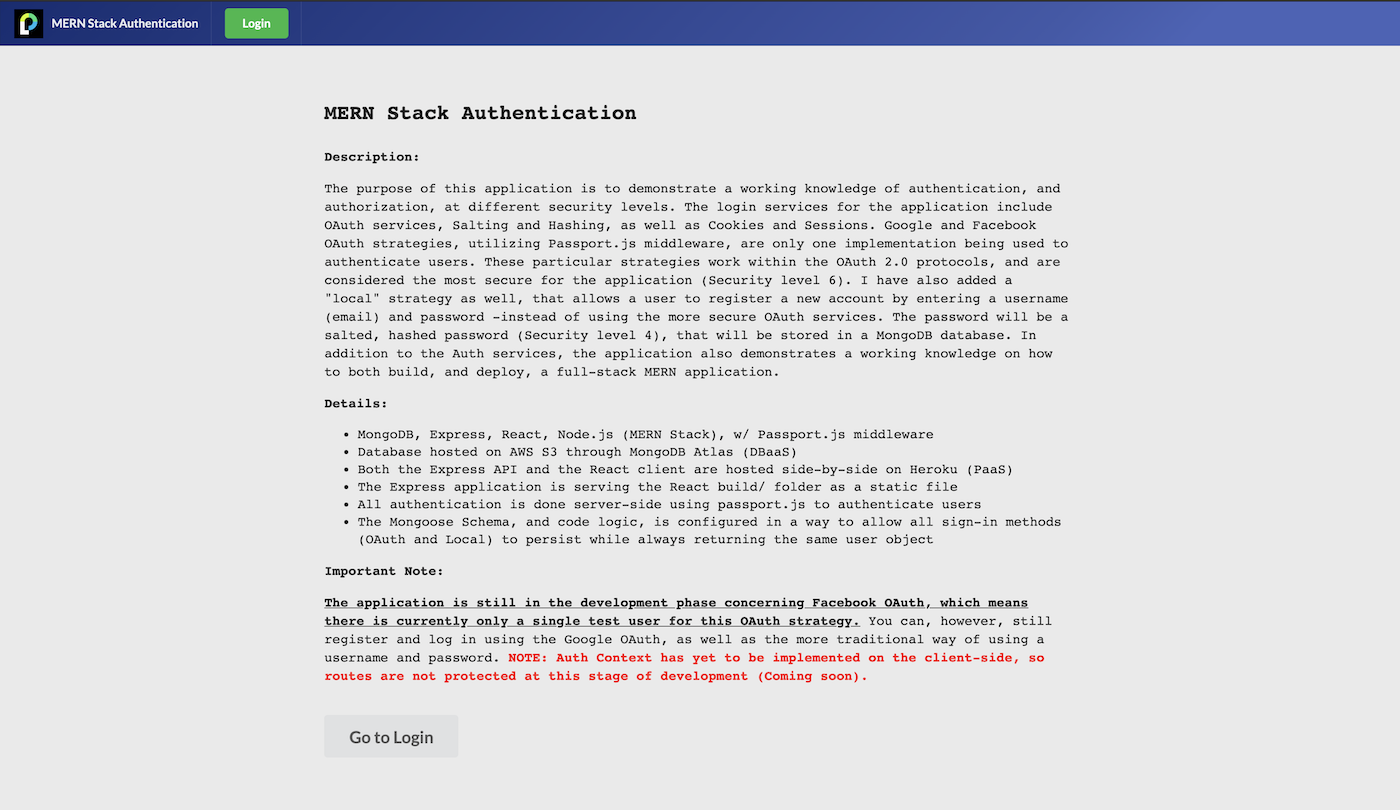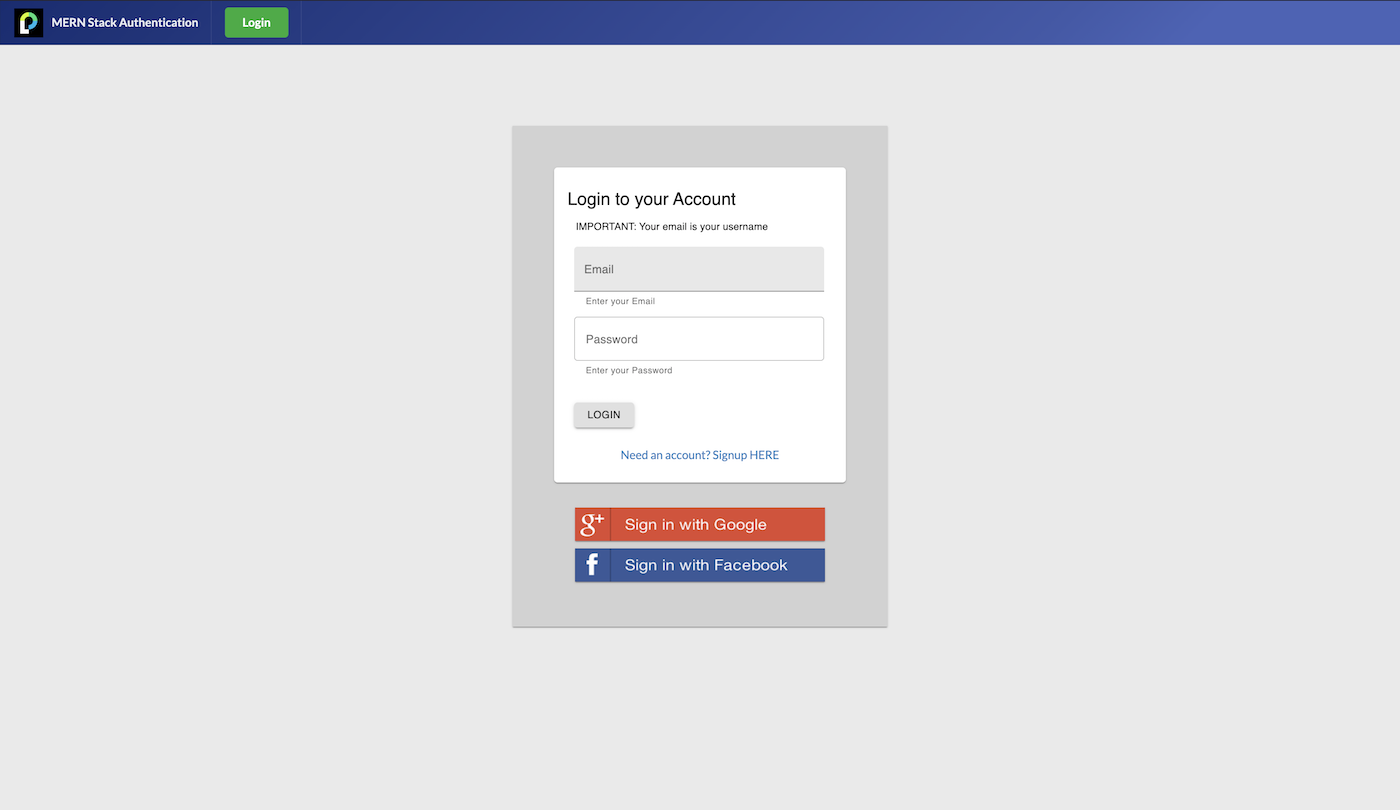Live Demo: MERN Stack Authentication Website
Repository: github.com/ratta2ii/mern-stack-authorization
The purpose of this application is to demonstrate a working knowledge of various Auth Services, and the different security levels for each implementation. The application includes Salting and Hashing, Cookies and Sessions, as well as OAuth services.
A Google OAuth strategy offers users a way to be authenticated, and then authorized, to access the backend API using OAuth 2.0 protocols; This strategy is considered the most secure for this application (Security level 6). I have also added a "local" strategy as well, that allows a user to register a new account with a username and password -instead of using the more secure OAuth services. The password will be hashed, with salt (Security level 4), and then stored in a MongoDB database.
In addition to the Auth services, the application also demonstrates a working knowledge on how to both build, and deploy, a full-stack MERN application to a production environment.
- MongoDB, Express, React, Node.js (MERN Stack), w/ Passport.js middleware
- Database hosted on AWS S3 through MongoDB Atlas (DBaaS)
- Both the Express API and the React client are hosted side-by-side on Heroku (PaaS)
- The Express application is serving the React build/ folder as a static file
- All authentication is done server-side using passport.js to authenticate users
- The Mongoose Schema, and code logic, is configured in a way to allow all sign-in methods (OAuth and Local) to persist while always returning the same user object. (In order to demo multiple log-in strategies in this project.)
-npm install mongoose-encryption
- npm install md5
- npm install bycrypt
- npm install passport
- npm install passport-local
- npm install passport-local-mongoose
- npm install express-session (NOT sessions)
An "Auth Code" can be likened to an admit one ticket, whereas an "Access Token" can be likened to a year pass.


